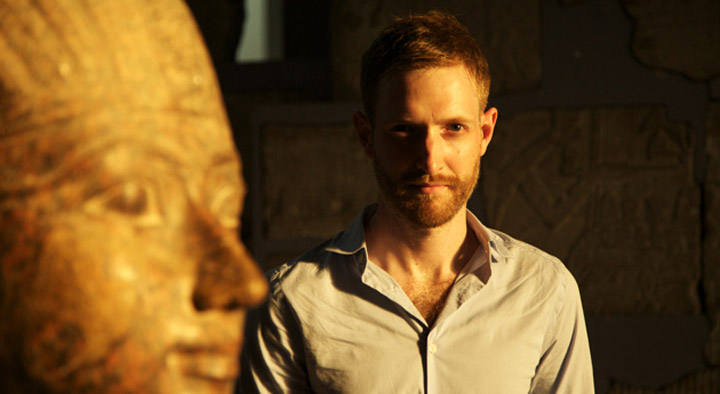TORONTO – He’s been dead for thousands of years, and his body was discovered nearly a century ago. And yet Tutankhamen — the mysterious boy pharaoh whose tomb was discovered intact in 1922 — continues to capture imaginations and fuel lingering questions that still baffle experts.

“It’s far bigger than anyone could have possibly imagined, I think, and it’s far bigger than anyone could really handle,” said Chris Naunton, director of the Egypt Exploration Society. “In some ways, it’s the great dream—an intact royal tomb of that period, as well. Tutankhamen wasn’t as known or celebrated until he was discovered.”
With this year marking the 90th anniversary of the tomb’s discovery, Tutankhamun Decoded, the new Naunton-hosted documentary airing this weekend on History, aims to provide more answers to some of the big questions on the topic of Tut: How did he die? Why, with the Egyptian reputation for fastidiousness in burials, does Tutankhamen’s burial seem rushed and error-filled? Why is there evidence of burning on the body? And why was his tomb found intact, when other resting places in the Valley of the Kings have been picked clean by looters?
“There’s been a lot of work in the last few years, in particular on the mummy,” said Naunton, 35, from his office in London. “There was a feeling that a lot of the loose ends around that hadn’t really been tied up. So some specific lines of investigation had been picked up, but it was time for a bit of an overview.”
Part of the investigation arose from a surprising oversight: that original discoverer Howard Carter died with many of his field notes unpublished. To answer some of those notes’ outstanding questions, the documentary crew deploys the latest technologies, from CT scans of the mummy, rigorous digital recreations of the chariot collision Naunton believes killed Tutankhamen, and chemical testing of the mummy’s wrappings.
What they collect over the course of the hour-long film is a remarkable reminder that there is still so much to learn about the 19-year-old pharaoh.
Theories as to how Tutankhamen died have been myriad, from malaria to an accidental fall. Naunton’s film posits a new theory for this aspect — that the warfaring pharaoh was killed in the heat of battle, struck across the chest by a speeding chariot. But while the technology supporting this theory has been around for a few years, it took this film to bring those elements together.
“It’s just the nature of archeology actually … we don’t always have access to that kind of technology, the experts that are required,” he says. “It took in some ways a project like a documentary film … to be the best possibility for uniting researchers from different fields. It’s sad, but it’s probably true, that these big multidisciplinary collaborative projects are all too rare, certainly too rare in archeology and Egyptology.”
Naunton is not sure how his community will receive his findings, as they have been closely guarded leading up to the premiere itself, and he and his collaborators are hoping to eventually formally publish them in a scientific journal.
But he is confident in his work — including a rather explosive theory near the end of the film arising from mud-sample analysis in the Valley of the Kings, which suggests there is the potential for even more secrets to be uncovered.
“One of the things that is a really exciting possibility is because so much of the science side of things is new … there’s the possibility for us genuinely to make use of this,” he says. “I think the research is all very robust. Whether or not it will be the last (theory) remains to be seen.”
And unlike in science, where the ultimate truth is the goal, Naunton actually hopes that his is not the final theory.
“I think we can’t (really know everything). If we could, that this could be the last word, there’d be a kind of sadness in that. Our job really is … to advance the picture, to take the story forward. There’s bound to be new technology in the future, maybe not new material, that could take the story a bit further.”
But while the questions will continue — and perhaps never end — Naunton said the political turmoil in Egypt has provided new pressures and urgency to the work of Egyptologists such as himself.
“Some things are more difficult. Security is a lot trickier now, but to a certain extent though, there is a greater openness among our colleagues in Egypt and around the world to work on this new material,” he says. “I think there is also a renewed interest in Egypt and a new kind of awareness that this work really needs to be done that there is a very real threat that if we don’t salvage materials and study it properly, it could be gone and lose things. It remains very uncertain.”
The documentary will premiere on Sunday at 9 p.m. on History.
History is owned by Shaw Media, parent company of Global News.





Comments